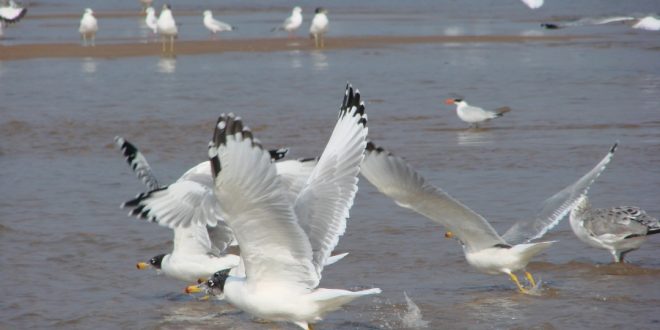CHILIKA: A decade ago, Mangalajodi village on the northern edge of Chilka in Odisha, was a village of bird catchers. Virtually all species were trapped or shot, to eat or sell. It was a lucrative business, yielding up to Rs. 30,000 a month for some people.
But, in a major transformation at Chilika, Asia’s largest brackish water lake in Odisha and the largest winter resort for migratory birds in the subcontinent, the poachers have turned to become protectors of birds.
Their transformation has also inspired others in their neighbourhood to follow suit.
They have even formed a bird protection committee which the forest department is banking on to protect birds flocking to Chilika.
Killing birds is an ancient ritual in Chilika, as old as its moonlit winters and flocks of birds. Nets, traps and guns all have been used. Wild Orissa, a non-government organisation, however, noticed the decline of birds and tried to reform the villagers through cultural and ethical arguments.
In 1997, Wild Orissa began its mission in Mangalajodi, a village entrenched in the poaching habit and clearly the biggest challenge in the area. The first step was to meet the villagers and begin the slow process of trust-building.
Wild Orissa’s Nandakishore Bhujabal led the initiative and began by listening to the villagers, discussing their sorrows and joys, forging friendships, and, in time, he was being trusted and respected as a benevolent patriarch by the hardened poachers. What Mangaljodi needed, Bhujabal decided, was a behaviour change. They needed to know the effects of their actions on the ecosystem around them.
“The prospects of a respectable lifestyle, where they weren’t treated like thieves and earned a legitimate income from ecotourism, appealed to them, nd they decided to be protectors instead of poachers,” said Ramesh Behera, one such to have turned a new leaf.
They have formed a ‘Sri Sri Mahavir Pakshi Suraksha Samiti’ (bird protection committee) in an effort to completely eliminate bird poaching in Chilika, while some ex-hunters have become diehard conservationists.
In 2007, the state government awarded the Biju Pattnaik Award for Wildlife Conservation to the Samiti.
The Chilika Development Authority recognised their efforts by adopting direct action programmes with the Samiti to accelerate change.
“The Samiti members and forest officials jointly conduct patrolling in and around Chilika. They are providing information about poachers,” said Bikash Ranjan Das, the Divisional Forest Officer (DFO) of the Chilika Wildlife Division.
He said some of the youths of the committee have been trained as guide to promote ecotourism and earn a livelihood.
Besides, they have been engaged as drivers in power boats for patrolling in Chilika.
The Samiti functions like a well-oiled machine, holding regular meetings within itself as well as with forest staff on various issues.
The Chilika Development Authority has also funded a watchtower and visitors’ centre.
Remarkably, being inspired by the Sri Sri Mahavir Pakshi Suraksha Samiti, some nearby villagers have decided to form committees to be bird protectors and lead a respectable life, Das said.
With hundreds of thousands of foreign avians flocking every winter season, the forest department has made elaborate arrangement for their protection.
Last winter 762,000 feathered guests of 172 different species had visited the lake, while around 719,000 birds of 158 species had visited the lake in the previous winter, despite cyclone Phailin that hit in 2014.
The wildlife division has set up 19 temporary camps in the lake while 10 power boats have been hired for patrolling. Forest officials and other forces have been engaged for patrolling in and outside the lake to prevent poaching of the migratory birds, the DFO said.
Winged guests from far off places including the Caspian Sea, Lake Baikal, remote parts of Russia, central and southeast Asia, Ladakh and the Himalayas descend on Chilka every winter for feeding and roosting.
These birds travel great distances, possibly up to 12,000 km, to reach the lagoon. It is a freshwater zone with marshes, reed beds and rich birdlife. They start their homeward journey with the onset of summer.
 Update Odisha-Latest Odisha News I Breaking News Get latest news on Odisha, Govt. Jobs, OSSC, OPSC, Entertainment, Crime, Sports, and Education
Update Odisha-Latest Odisha News I Breaking News Get latest news on Odisha, Govt. Jobs, OSSC, OPSC, Entertainment, Crime, Sports, and Education



